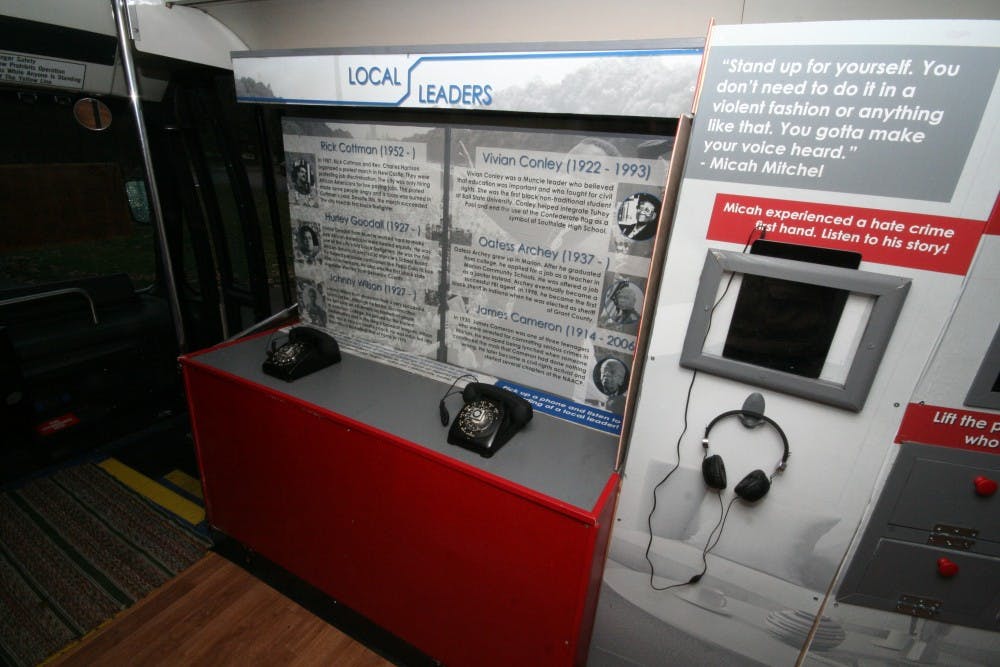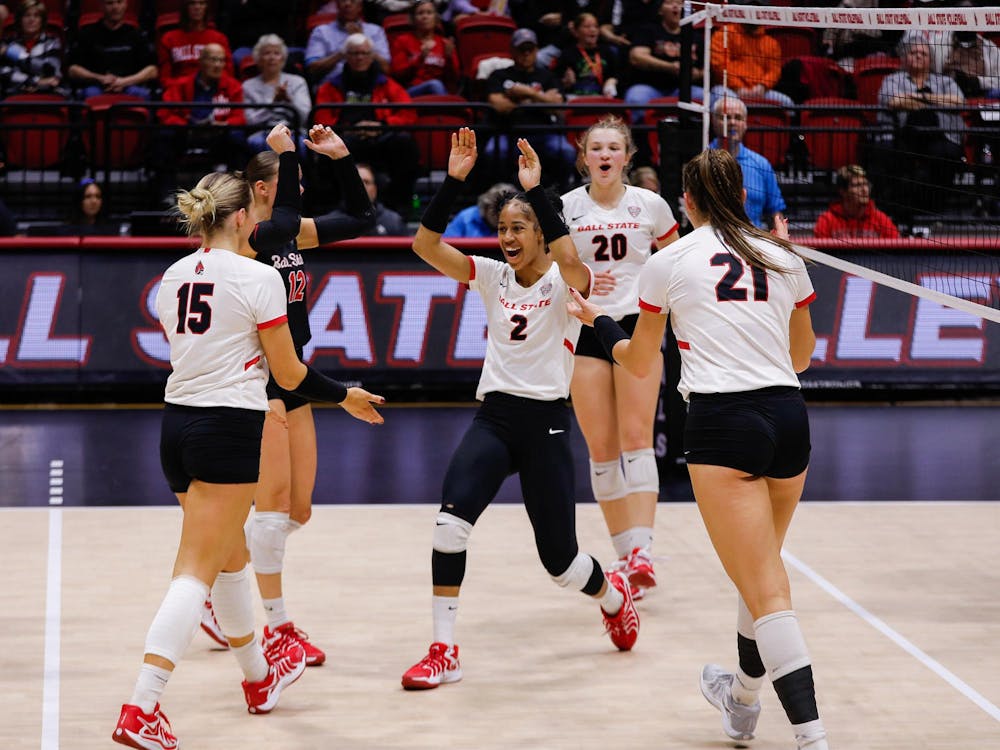Freedom Bus opening
What: Black History Month Kickoff
When: Feb. 7, 9:30 a.m.
Where: Minnetrista
A Ball State class is taking over a project to highlight the Civil Rights movement in Muncie after the initiative’s funding failed and its founder died.
The Freedom Bus project began in 2005 when late Bea Moten-Foster, the Martin Luther King Dream Team founder, was inspired by Rosa Parks’s legacy to find the same type of communal strength in East Central Indiana, said Susan Fisher, Dream Team chairwoman.
The bus, a mobile museum made from a recycled public transportation bus, will travel to nine counties in East Central Indiana to educate children on diversity and Civil Rights.
The bus will display personal stories from East Central Indiana in six sections – backstory, big idea, education and employment, local leaders, public accomplishments and hate crimes.
MITS donated the bus, and shortly after, the group was given a community grant for $10,000.
“The project has had its fair share of issues,” said Beth Messner, head of Virginia Ball Center Seminar and Dream Team assistant secretary. “The engine [of the bus] blew out. It wasn’t exactly like they had the money to fix ... the engine, so the progress stalled.”
The community raised enough money to fix the engine, and MITS, in addition to donating the original engine, donated the cost of labor.
Among the struggles the Dream Team had already faced, founder Moten-Foster, died in 2011, Fisher said.
When the fundraising did not cover all costs of progress, Virginia Ball Center commissioned a seminar to begin rebuilding the inside of the bus to create a locally-based museum.
Messner said the objective of the bus was not to highlight the well-known stories, but the Civil Rights movement on a local level. All information came from local sources.
The 14 students in the 15-credit seminar worked to create the layout and designed the bus in the fall of 2014.
“We went to the Virginia Ball house every day for the semester. We spent our life there,” said Marie Prevost, a junior history major.
Prevost said she chose the seminar because of the impact it had on the community. The seminar was her second immersive learning project.
“This project was more in-depth; it yielded a tangible result,” said Prevost, “I have plane ticket stubs from my last trip, pictures, but there was no tangibleness from it. In the grand scheme of things, I built a civil rights bus. I spent an entire semester having no idea what was going on, and I had an impact on somebody’s life."
The Freedom Bus will begin beta-testing through the Virginia Ball Center Seminar this semester, which will “troubleshoot design flaws,” Prevost said.
The completion date is estimated to be January 2016, said Messner; however, the museum will be on display temporarily Feb. 7, 2015 in honor of Black History Month.
Though it may sell tickets or host events, the mobile museum will cater mainly to elementary schools, said Messner.
Fisher said having the mobile museum based on the community strengthens its significance.
“As a group, we felt that of course contributions by national leaders have been important, but there are also things that happened here every day acts of bravery, of defiance, if needed, that made things happen locally,” Fisher said. “So we want the entire community to know about this, but especially students.”





